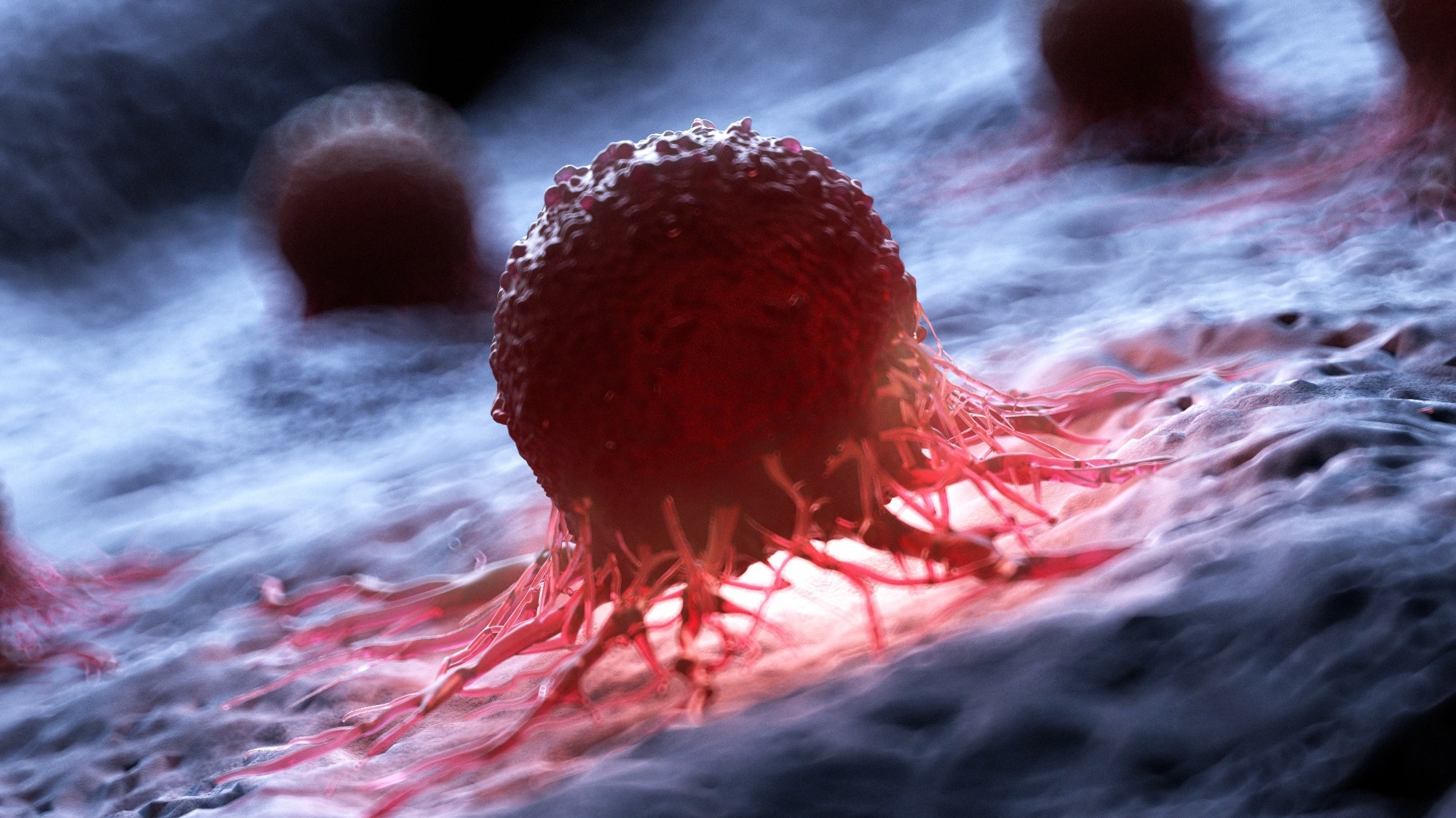Type 2 diabetes mellitus increases the risk of multiple health conditions, including various forms of cancer; however, the mechanisms responsible for this association remain unclear.
 Study: Diabetes and further risk of cancer: a nationwide population-based study. Image Credit: Sebastian Kaulitzki / Shutterstock.com
Study: Diabetes and further risk of cancer: a nationwide population-based study. Image Credit: Sebastian Kaulitzki / Shutterstock.com
Diabetes and cancer
Type 2 diabetes mellitus is a metabolic disease that is caused by both genetic and environmental factors. Large epidemiological studies have indicated a higher risk of liver, pancreas, uterus, colon and rectum, breast, and bladder cancers in individuals with diabetes.
Diabetes is associated with microvascular disease, the most common manifestation being diabetic retinopathy (DR), which is the most significant single cause of loss of vision in middle age. Multiple factors contribute to DR, including high blood sugar, high levels of toxic advanced glycation end-products, and the activation of several pathways that are also common to the development of cancers.
Common phenomena like oxidative stress, inflammation, vascular abnormalities, and new blood vessel formation are also shared between both cancers and DR. Thus, better glycemic control could reduce cancer incidence in this population.
About the study
The current retrospective study involved analyzing data from the National Health Insurance Research Database (NHIRD), the Taiwan Cancer Registry (TCR), and the National Death Registry (NDR) of Taiwan between January 1, 2007, and December 31, 2018.
Data from 3,111,975 and 22,208,395 patients with and without primary diabetes, respectively, initially comprised the diabetes and non-diabetes groups. Patients with diabetes caused by factors that may also independently cause cancer, such as hepatitis B or C viral infections, patients who were diagnosed with cancer prior to the diagnosis of diabetes, and those who were twenty years or younger were excluded from the study. This led to a total of 1,751,457 patients in both the diabetes and non-diabetes groups.
Diabetes patients were also stratified by the presence of DR, which reflects the duration of diabetes and the degree of glycemic control. DR was further categorized as proliferative (PDR) or non-proliferative (NPDR).
Diabetes and cancer risk
Total cancer incidence increased by 20% in patients with diabetes, with the highest risk increase observed for liver and pancreas cancers, followed by cancers of the oral cavity, gallbladder, female reproductive tract, kidney, and brain. This increase in risk ranged from 25-34%, except for kidney cancers, where the risk was 44% higher.
Other cancers that moderately increased in risk by 17-20% included cancers of the stomach, skin, and breast in females and the urinary tract. The only cancer that was reduced in the diabetic cohort was esophageal cancer.
Male diabetic patients were associated with a 20% increased cancer risk. Patients with comorbid hypertension had a 10% higher risk of cancer, while those with high blood lipid levels were associated with a 14% reduced risk of total cancer but an increase in female breast cancer.
The inverse association of hyperlipidemia with cancer might be due to the increased risk of early cardiovascular mortality; however, a direct anti-cancer effect of high cholesterol levels is also possible.
Diabetes with DR
Diabetes patients with DR had a significantly higher total cancer incidence as compared to the non-DR cohort at 32% and 20%, respectively. Cancer incidence in the liver, mesothelium, urinary tract, and soft tissues increased in the diabetes with DR cohort.
Other sites with a moderately increased risk of cancer included the oral cavity, lip, stomach, colon, and pancreas. Cancers of the lymphatic system and bone marrow were also more common among diabetes patients with DR.
Among those with DR, the risk was 13% higher in those with PDR than those with NPDR. Stomach, liver, female organs, and urinary tract cancers were more common in patients with PDR as compared to those with NPDR. Similarly, males were at a 25% greater risk than females.
Conclusions
Diabetes is an independent and significant risk factor for the development of cancer overall, as well as cancer at specific sites. This risk is exacerbated in people with diabetes who develop DR, which may be attributed to the significantly higher levels of serum vascular endothelial growth factor (VEGF) and angiopoietin-2 (Ang-2) in these patients as compared to people with diabetes not diagnosed with DR.
Systemic inflammation, which is often the response to diabetes, can also increase the risk of various cancers, including those affecting the liver, pancreas, colon, and breast. Furthermore, numerous inflammatory mediators, including proinflammatory cytokines and chemokines, are released in DR, which may also facilitate carcinogenesis.
These results raise the possibility that diabetes and DR may share common pathogenic features with cancer, and strict blood glucose control to prevent DR in patients with diabetes may further reduce cancer development.”
Journal reference:
- Chang, W., Hsieh, T., Hsu, W., et al. (2024). Diabetes and further risk of cancer: a nationwide population-based study. BMC Medicine. doi:10.1186/s12916-024-03430-y.